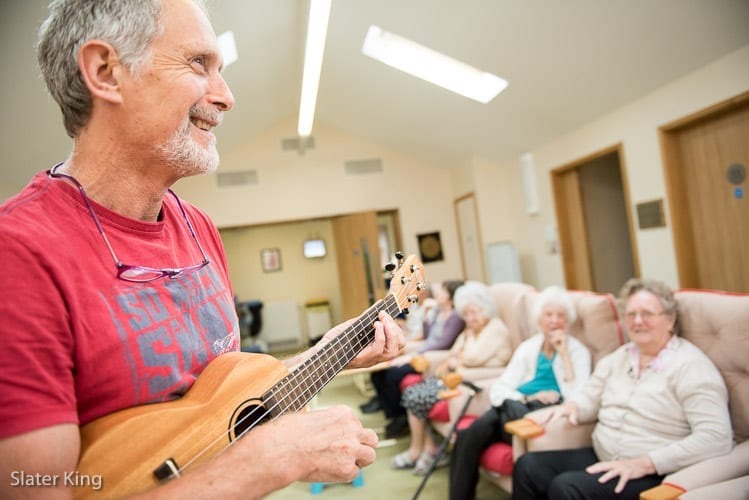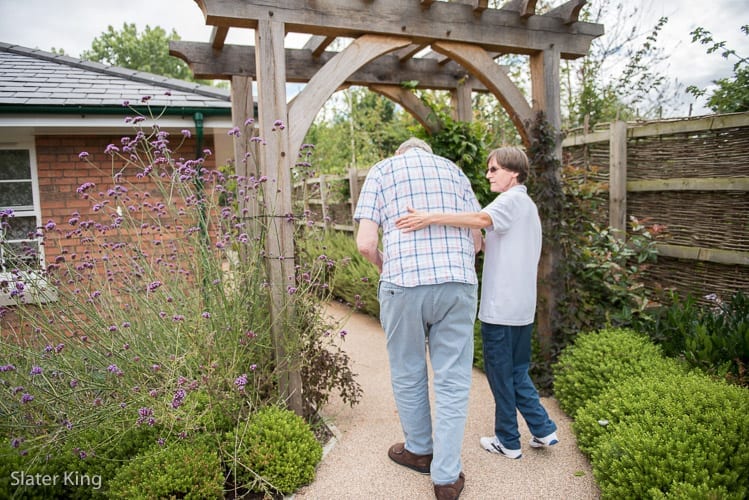Music therapy is a powerful tool that can be used in care homes to benefit the lives of elderly people and those living with dementia. Music can help to improve cognitive function, reduce anxiety and depression, promote social interaction, and provide a sense of comfort and joy.
Why is music important in care homes and how does it help the elderly?
Music, and indeed music therapy, is important in care homes like Stanfield Nursing Home for a number of reasons. First, it can help to stimulate/improve cognitive function. Studies have shown that listening to music can help to improve memory, attention, and language skills. This can be especially beneficial for people with dementia.
Second, music can help to reduce anxiety and depression. Listening to calming music can help to relax the mind and reduce stress levels.
Third, music can promote social interaction. Music can bring people together and encourage them to sing, dance, and share memories.
Finally, music can provide a sense of comfort and joy. Music can evoke positive emotions and bring back happy memories. This can be important for people who are receiving palliative care, as it can help them to feel loved and supported.
Why is music therapy used for people living with dementia
Music therapy can improve cognitive function, reduce anxiety and depression, promote social interaction, and provide a sense of comfort and joy.
Music can also help to trigger memories from the past and even help to remember recent events. Listening to music from their childhood or youth can help them to feel connected to their past and to their loved ones.
How to use music therapy with dementia patients
There are a number of ways to use music therapy with those living with dementia. Here are a few ideas:
- Play music that they enjoy. This could be music from their childhood or youth, or music that they simply enjoy listening to.
- Encourage them to sing along. Singing can help to improve cognitive function, reduce anxiety, and promote social interaction.
- Dance to the music. Dancing can help to improve physical function and coordination, and it can also be a lot of fun!
- Play musical instruments. Playing musical instruments can help to improve cognitive function, motor skills, and coordination. It can also be a great way to socialize and have fun.
- Create music together. You can use musical instruments, your voice, or even your body to create music with the patient. This can be a great way to bond with the patient and to help them to express themselves.
Music therapy at Stanfield Nursing Home
At Stanfield Nursing Home, we believe that music therapy is an important part of providing quality care for our residents. We offer a variety of music therapy activities, designed to meet the needs of each individual.
Here are just a few examples of the music therapy activities that we offer at Stanfield Nursing Home:
- Individual music therapy sessions: These sessions are tailored to the specific needs and goals of each individual using a variety of music therapy techniques, such as singing, playing instruments, and listening to music.
- Group music therapy sessions: These sessions provide an opportunity for residents to socialise and interact with each other.
- Music and memory sessions: These sessions are designed to help residents with dementia to remember their memories. The music therapist may use music from the resident’s past to evoke memories.
- Music and movement sessions: These sessions help people improve their physical function and coordination with dance exercises or other movements.
Related: Musical therapy with Corinne Frost at our Dementia Care Home
We believe that music therapy is an important part of providing the people we support with appropriate and enjoyable stimulation. If you want to learn more about care at Stanfield Nursing Home, please visit our website today. Alternatively, you can call 01905 420 459 to speak to a member of our helpful and friendly team. You can also check out our social media for daily updates.
If you have found this useful, you may wish to read our blog on the Benefits of Reminiscence Therapy in Care Homes.



